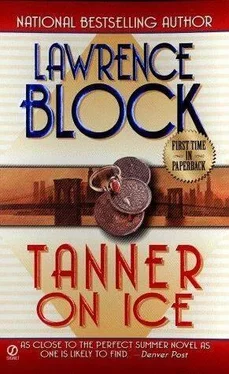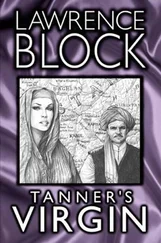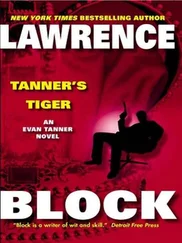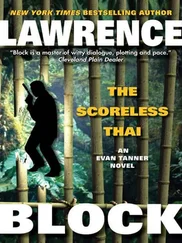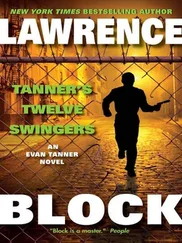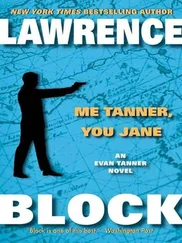I knew I’d get a better rate with less chance of getting ripped off if I changed my FEC at any of the large hotels, but I had another reason for doing business with a street-level entrepreneur. I could ask him questions I couldn’t try on a hotel clerk.
His English was serviceable. He had a limited vocabulary, and a sometimes challenging accent, so he was not in the same league conversationally as the fellow with the gun on his hip. On the plus side, he didn’t have a gun on his hip. And he wanted to do a deal with me, not stop me in my tracks and shine me on.
We did our business, a process that was not made any easier by the curious denominations that kyat come in. In addition to the bills you expect them to have, they’ve also got a forty-five-kyat and a ninety-kyat note. This stems not from a disdain for the decimal system but because one of their Gallant Leaders believes forty-five or ninety (I forget which) to be his lucky number. So he had the treasury print currency accordingly.
I’ll tell you, I kind of liked knowing that. It was the one thing I knew about any of the SLORC-heads that sounded even halfway human. I could picture the guy sitting around the house, playing a stack of 45’s and knocking back shots of ninety-proof sour-mash whiskey. Just a regular fellow, I thought, with a regular fellow’s quirks.
When I had all the kyat my friend was going to give me, I sat back and smiled, then motioned to the waitress for a fresh pot of tea. “ Yangon is a beautiful city,” I told my new friend.
“Ah, Rangoon,” he said. “Beautiful.”
Was he making a subtle political statement by using the city’s pre-SLORC name? Or was it just his accent making his pronunciation an imperfect echo of mine?
Hard to say. I told him that I was from New York, and that it too was a beautiful city, and very large.
He knew about New York; he’d seen movies that took place there. “Buildings ver’ tall,” he said. “Much bright lights.”
“That’s New York, all right.”
“Wor’ Trade Center. Liberty statue. Empi – Empi-”
“ Empire State Building,” I supplied.
“Empi Stableding,” he agreed. “Big, ver’ big.”
He was from the Shan state himself, he told me, from a small village near the hill-station town of Kalaw. It was up in the mountains, with a pleasing climate. “Not so much hot,” he said.
I told him it sounded lovely.
“You travel Shan state?”
“I don’t know,” I said. “It’s possible.”
“Sometimes possible. Sometimes they say no.”
“The government?”
“Gov’ment,” he said, and looked sidelong at me, as if to assess my feelings about the government.
“You are very fortunate,” I said evenly, “to have such a strong government to care for your country.” And I leaned over and spat on the floor.
His eyes lit up. “For’nate,” he said, and spat. “Gov’ment ver’ strong. Care for Shan people.” And he hawked and spat again.
“The generals must be great men,” I said. And spat.
“Great men,” he agreed. And spat.
We looked at each other and smiled.
“I wonder,” I said. “Is Shan food as good as Burmese food?”
“Ha,” he said. “Is better!”
“Where would I get some true Shan food in Rangoon? Is there such a place?”
Grinning, he leaned over and clapped me on the shoulder. “You come,” he said. “You come. We eat good.”
There was a Shan noodle shop just a few blocks away. I couldn’t have said if what I had was better than Burmese food, since I hadn’t had any Burmese food yet, but it was very good indeed. The main dish was a bowl of chicken soup with rice noodles, and it was accompanied by a dish of sour rice salad, the rice colored a deep orange-yellow with turmeric.
The local beer was Mandalay, but Ku Min wouldn’t let me order it.
“Costs more,” he said. “Tastes like water.” It sounded like a Miller Lite commercial to me, with one contingent of ex-jocks shouting “Costs more!” while the others countered with “Tastes like water!” He ordered us bottles of San Miguel, which had come all the way from Mexico and still cost less than a dollar a bottle.
Our second round was Tiger beer, which I’d seen in the States, and our third was Bintang, which I hadn’t. We were doing quite well in the male-bonding department, Ku Min and I, and hadn’t found it necessary to say anything further about the government, and consequently had had no need to spit on the floor.
“This woman,” I said. I leaned forward, lowered my voice. “Aung San Suu Kyi. We hear much about her in America.”
“Ah,” he said.
“You think she is good?”
He took his time answering. “For Burmese she is good,” he said at length.
“And for Shan?”
“Shan supposed to have independent state. Supposed to have own government.”
“The deal they signed with the British in 1947,” I said. “The Panglong Agreement.”
“You know about Panglong?”
I knew that the Shan leaders had signed away their hereditary rights and never felt they got the autonomy they bargained for. They’d been in a state of intermittent rebellion ever since. These days SLORC had the lid back on the kettle, but that didn’t mean they’d stopped simmering.
Aung San Suu Kyi was all right, Ku Min allowed. She was a good person, and if she ran things the Shan would probably have more autonomy, if not the outright independence they’d bargained for.
But what difference did it make? “She got no power,” he said. “Gov’ment say stay in house, she stay in house. Gov’ment say nobody go see, nobody go see. She good, she bad, what difference?”
And what if something happened to her?
He rolled his eyes at the very thought. “Be very bad,” he said. “Not good to be in Rangoon when that happens. People be very set-up.”
“Upset.”
“Good, yes. People be upset. Go peanuts. Is right? Go peanuts?”
“Go nuts,” I said. “Or go bananas.”
“Go bananas,” he said, enjoying the phrase. “Something happen to Suu Kyi, Burmese people go bananas.”
So the Chief was right, I thought. All I had to do was kill her.
No, of courseI wasn’t going to kill her.
In the first place, it’s not the sort of thing I do. I’m a long ways from nonviolent, although I like the idea of nonviolence. But I’m certainly not an assassin.
Assassination, according to Bobby Kennedy, never solves anything. Well, I’m not too sure about that. You could argue rather forcefully that assassination had solved Bobby Kennedy. And, just as I’ve wondered how history might have been different if the Kennedys had not been gunned down, so I’ve wondered what difference a well-placed bullet or bomb might have made with Hitler or Stalin as the target. It was a little late in the game by the time Von Stauffenberg and his pals tried to take out the Führer, but suppose someone had nailed the son of a bitch in, say, 1930, or ’35 or ’40. Would we have been spared Auschwitz? Might we have avoided the Second World War altogether?
Recently, in the course of catching up with current events, I’d read about the Gulf War and wondered why nobody had thought to knock off Saddam Hussein. Surely it had to be more cost-effective than sending a whole army halfway around the world, and more humane than bombing hospitals in Baghdad, or burying enemy infantry battalions in the sand. And, if it was simply too difficult to pull off in the beginning, why not do it at the end, when the Iraqi army was reeling? Just drop in an airborne unit with instructions to find him and string him up. Down the line you could always attribute the action to dissident Iraqis. There had to be a few of those around, and if you just kept quiet about the whole thing, some of them would very likely jump up and claim the credit anyway.
Читать дальше
